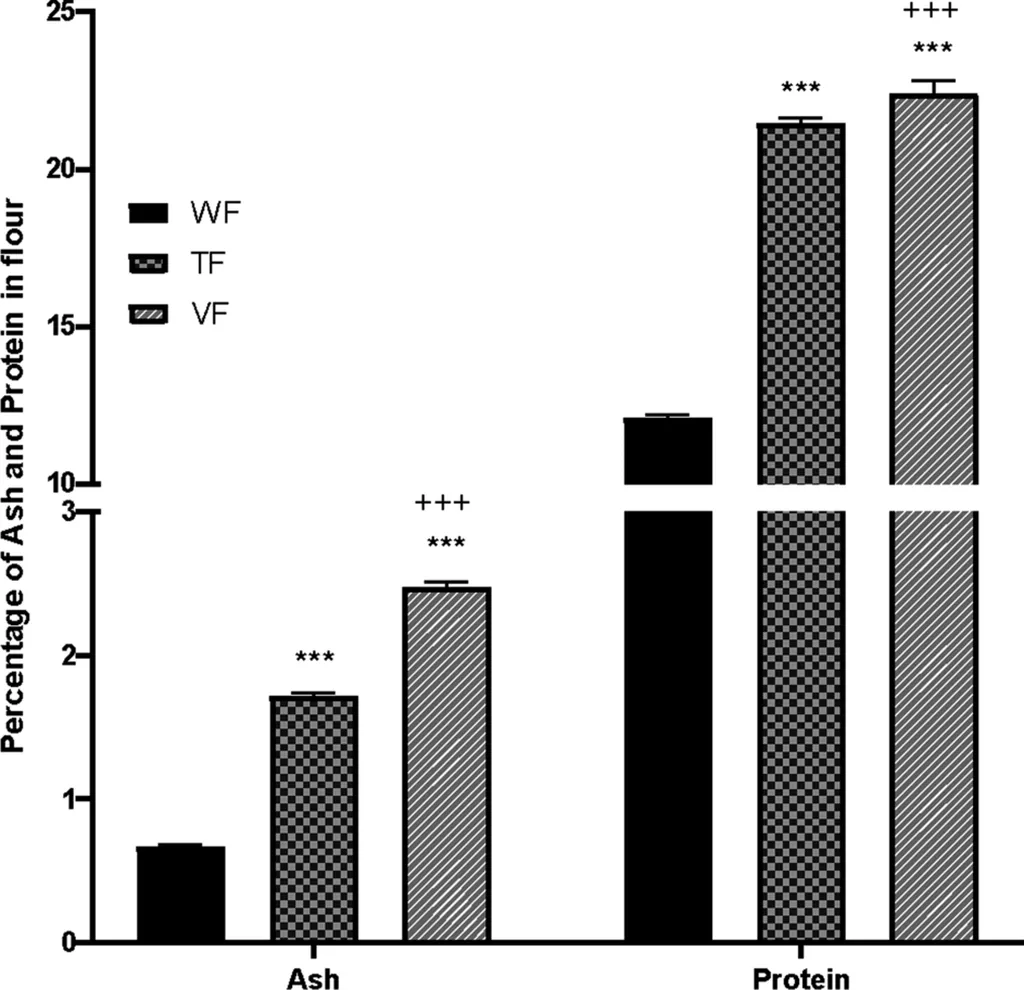In the quest to enhance nutritional value and sustainability in food production, researchers have turned to an unconventional yet promising ingredient: vetch. A recent study led by Khadijah Chaker from the Department of Nutrition and Food Sciences at the Lebanese International University explores the potential of detoxified vetch flour as a protein-enriching additive in Arabic leavened bread. The findings, published in *Discover Food* (translated as “اكتشاف الطعام”), offer a glimpse into how this humble legume could revolutionize the food industry, particularly in arid regions where protein deficiency is a pressing concern.
Vetch, a hardy crop known for its resilience in harsh climates, has long been overlooked in favor of more conventional grains. However, its high protein content and adaptability make it an ideal candidate for addressing nutritional gaps. Chaker and her team set out to investigate how incorporating detoxified vetch flour into wheat flour could impact the protein content and overall quality of Arabic bread.
The study involved blending wheat flour with vetch flour that had undergone detoxification treatments using hot water and acetic acid. The blends were tested at substitution levels of 10%, 20%, and 30%. The results were promising: the protein content of the bread increased significantly, particularly at the 20% and 30% substitution levels, with a notable 1.7% increase over the control. “This enhancement in protein content is a game-changer for regions where protein deficiency is rampant,” Chaker remarked. “It offers a sustainable and cost-effective solution to a critical nutritional challenge.”
However, the journey to fortification is not without its hurdles. The study found that higher levels of vetch flour led to a decrease in gluten content and an increase in moisture, which in turn affected the bread’s texture and shelf life. “While the protein enrichment is a significant win, we must address the trade-offs in texture and staling,” Chaker noted. “Our goal is to find the optimal balance that maintains both nutritional benefits and consumer acceptability.”
The commercial implications of this research are substantial. As the global demand for sustainable and nutritious food continues to rise, the integration of vetch flour into bread production could open new avenues for food manufacturers. The study suggests that moderate substitution levels of vetch flour can enhance protein content without significantly compromising bread quality, making it an attractive option for commercial applications.
Moreover, the use of vetch aligns with the Sustainable Development Goals (SDGs), particularly those focused on zero hunger and promoting resilient agricultural practices. Its adaptability to arid conditions makes it an ideal crop for regions where traditional grains struggle to thrive. “This research is not just about improving bread; it’s about creating a more sustainable and equitable food system,” Chaker emphasized.
Looking ahead, the findings pave the way for further exploration into the potential of vetch and other underutilized crops. Future research could focus on optimizing detoxification methods and blending ratios to minimize the negative impacts on bread quality. Additionally, exploring consumer perceptions and acceptance of vetch-enriched bread will be crucial for its successful market integration.
As the world grapples with the dual challenges of food security and sustainability, innovations like vetch-enriched bread offer a beacon of hope. By harnessing the power of science and technology, researchers like Khadijah Chaker are not only addressing immediate nutritional needs but also laying the groundwork for a more resilient and sustainable future. The study, published in *Discover Food*, serves as a testament to the potential of interdisciplinary research in transforming the food industry and improving lives.

